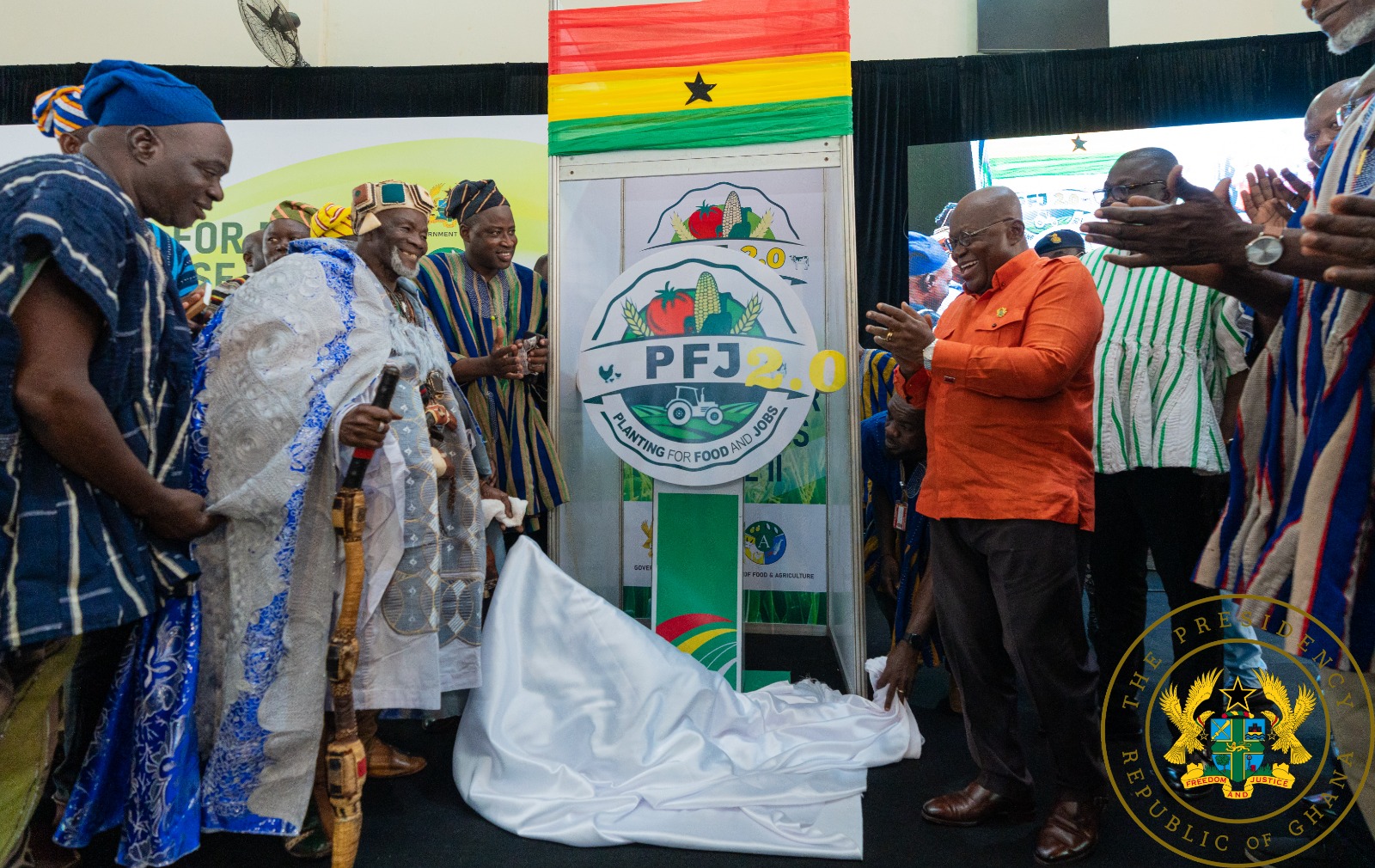President Nana Addo Dankwa Akufo-Addo has announced the launch of the second phase of the Planting for Food and Jobs (PFJ) program, reinforcing Ghana’s commitment to achieving enhanced food security and transforming its agricultural landscape through modern practices and technology.
This marks a pivotal shift from subsidy policies to an input credit system, heralding a comprehensive approach that encompasses all participants in the agricultural value chain.
The PFJ program, as articulated by President Akufo-Addo, places a strong emphasis on commercial agriculture, with far-reaching implications for all stakeholders in the agricultural sector, including producers, processors, distributors, and marketers. This holistic approach aims to invigorate economic activities within the sector, generate employment, bolster industrialization, increase exports, raise incomes, drive rural development, and stimulate overall economic growth.
Read also: MGI supports AfricaBP in advancing genomics for biodiversity, agriculture
Transforming Agricultural Value Chains
President Akufo-Addo emphasised that the second phase of PFJ adopts a holistic view, focusing on strengthening linkages along eleven selected agricultural commodity value chains. These value chains are broadly categorised into grains, roots and tubers, vegetables, and poultry. This strategic approach underscores the commitment to enhance the entire agricultural ecosystem.
The new phase of PFJ incorporates a transformative input credit system, offering farmers access to vital inputs such as seeds, fertilisers, pesticides, and other support services aimed at improving productivity and yield. Additionally, it includes the provision of storage infrastructure and logistic hubs to enhance storage and distribution, effectively mitigating post-harvest losses. This transition from direct input subsidies to smart agricultural financial support in the form of comprehensive input credit is a significant change in the strategy.
Building Food Security and Competitive Advantage
President Akufo-Addo’s vision for the program extends to food security and establishing a robust comparative advantage in the production of diverse cash crops, food crops, and poultry products. The ambitious goal is to achieve these objectives by the end of the five-year implementation period.
Furthermore, Ghana is poised to leverage the opportunities presented by the Africa Continental Free Trade Agreement (AfCFTA). This landmark trade agreement offers a unique platform for expanding market access, fostering trade relationships, and promoting economic growth within the African continent. President Akufo-Addo stressed the importance of Ghana’s competitive participation in the AfCFTA.
A Five-Year Master Plan
The second phase of the Planting for Food and Jobs program was officially launched at the University for Development Studies in Tamale on August 28, 2023. This five-year master plan represents a pivotal step toward transforming agriculture in Ghana, with a focus on modernization through the development of selected commodity value chains and active private sector engagement.
While the announcement of Phase II has generated optimism and enthusiasm, there is a collective call for prudent resource allocation and effective utilisation. The success of this program is contingent on responsible and transparent management of the resources, ensuring that they reach local communities and empower them to adapt to climate change while participating in sustainable agricultural practices.
Sahara Agriculture Expo showcases growing Sino-Egyptian agricultural collaboration
Collaborative Efforts and Long-Term Sustainability
Ghana has been presented with a significant opportunity to enhance its resilience against climate change impacts and contribute meaningfully to global efforts in combating environmental challenges. Collaboration between government agencies, private sectors, and non-governmental organisations is vital in implementing comprehensive and sustainable climate solutions that address immediate concerns and foster long-term environmental sustainability.
As Ghana embarks on the second phase of the PFJ program, there is an enduring hope that this transformative initiative will set the nation on a path to achieving its agricultural goals while bolstering food security and economic prosperity. President Akufo-Addo’s vision for comprehensive agricultural reform holds the potential to elevate Ghana’s status in the global agricultural landscape. The commitment to leverage the AfCFTA presents a unique opportunity for Ghana to strengthen its position in the regional and international markets.
The effective deployment of the resources allocated to the PFJ program will play a pivotal role in realising these ambitious goals, and stakeholders are encouraged to work collectively to ensure the success of this transformative agricultural initiative.




